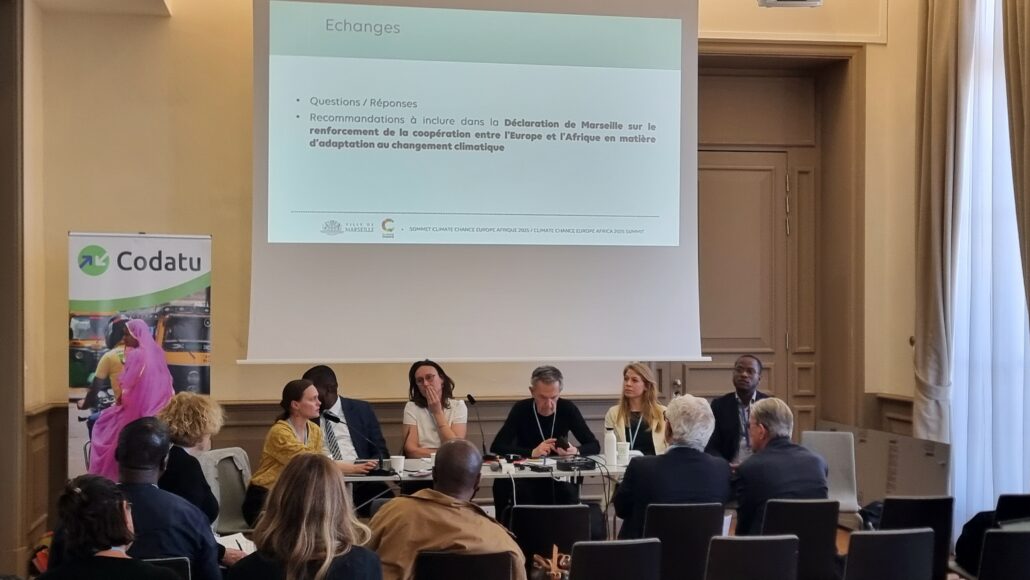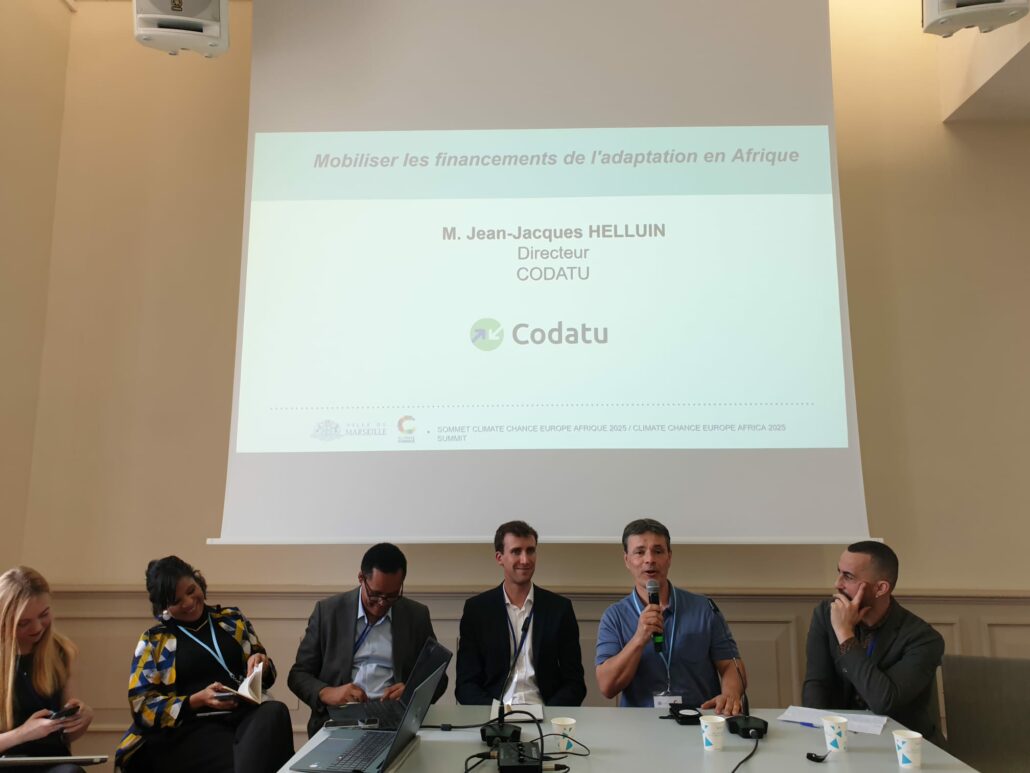Codatu at the Climate Chance Europe Africa 2025 Summit

The Codatu team attended the Climate Chance Europe Africa 2025 Summit, which took place on Monday 31 March and Tuesday 1 April 2025 in Marseille, and was able to participate in two sessions.
On Monday 31 March, during the Climate Chance Europe Africa 2025 Summit, the session ‘Adapting African urban mobility systems to climate change’ took place, co-organised by CODATU, MobiliseYourCity and Climate Chance.
This session, moderated by Heloïse Chaumier, gave way to 5 interventions:
o ‘Nine principles for adapting urban mobility to climate change’ by Philippe Sohouenou, PhD, RESALLIENCE
o ‘Integrating climate change adaptation into the formulation of PMUDs’ by Milnael Gomez, MobiliseYourCity
o ‘Exposure of transport networks to extreme rainfall in West Africa’ by Brilé Anderson, Sahel and West Africa Club, OECD
o ‘Taking climate risk into account in the BRT in Abidjan’ by Djan FANNY, AMUGA – Urban Mobility Authority in Greater Abidjan
o ‘Refreshing public spaces through vegetation: a necessity for pedestrians and cyclists’ by Dols Marie, Urban Planner, CODATU
Christian Philip, Vice-President of Codatu, concluded by reiterating that we must continue to decarbonise urban mobility, but that we are also obliged to prepare for adaptation to climate change by making African urban mobility systems more resilient. African Sustainable Urban Mobility Plans (SUMPs) must systematically include a Climate Change Adaptation component. He added that it is essential to establish frameworks and methodological guides for decision-makers and practitioners. Finally, local populations must be prepared to live with more frequent and intense climatic hazards.

On 1 April, Jean-Jacques Helluin, General Delegate of Codatu, spoke on the topic of ‘Mobilising funding for adaptation in Africa’.
The new 1% urban mobility scheme enables French mobility authorities to support equivalent authorities in cities in the South, to help them find their way towards sustainable urban mobility.
This support for governance is very often an essential prerequisite before being able to develop resilient infrastructure that is appropriate to the scale of the problems.
Decentralised cooperation therefore has a particularly relevant role to play in the field of mobility.
